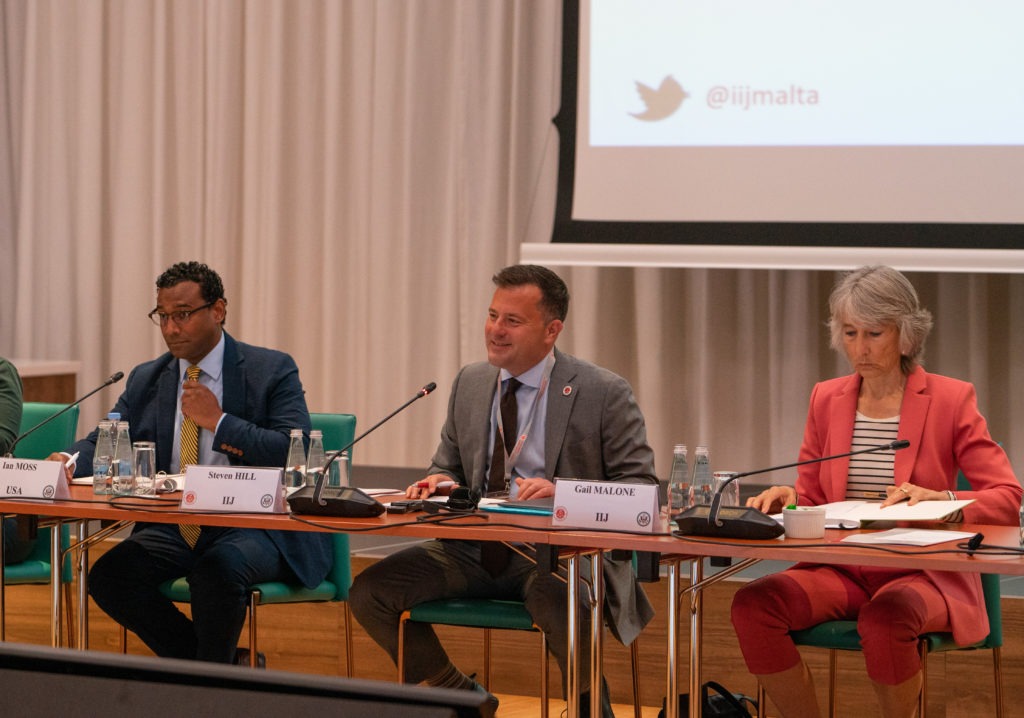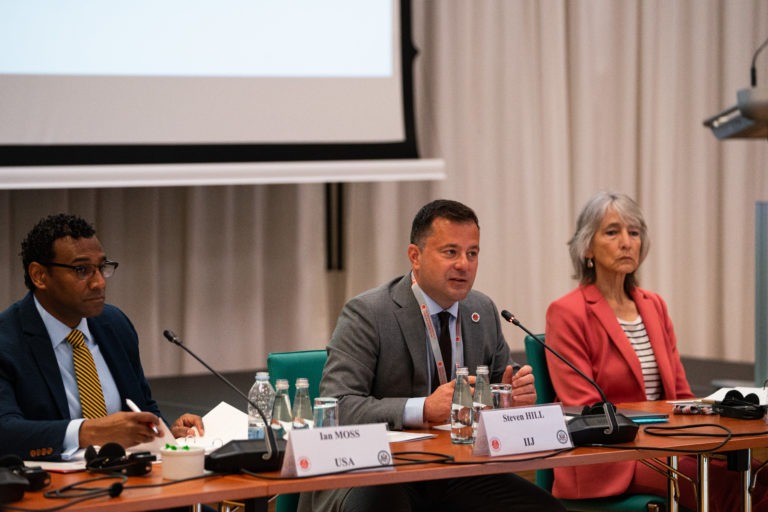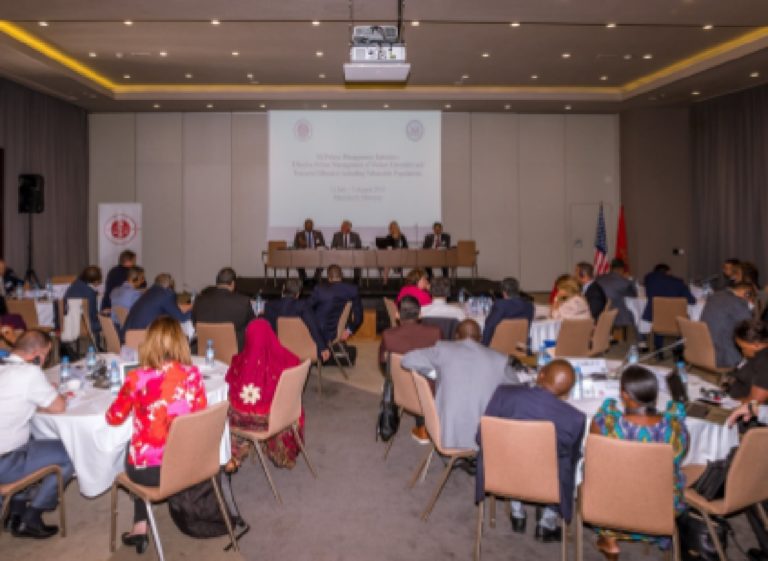REMVE: RADICALISATION IN THE RANKS
As part of our Racially or Ethnically Motivated Violent Extremism (REMVE) initiative, we hosted in Malta a roundtable focused on radicalisation within the security services’ ranks. This constitutes an important element of our efforts to develop the first-ever guide for criminal justice practitioners to counter REMVE, which we launched almost two years ago.

The event is personally important to me, due to my previous assignments at the U.S. National Security Council and NATO, and I am glad that we had an incredible group of experts joining us. Our participants included practitioners, policymakers, as well as non-governmental experts. The presence and commitment of our guest participants is a testament to the importance of the topic and the determination of everyone involved in making a difference.
As a nonpartisan multinational organisation, the IIJ is a platform for discussion that encourages intercultural dialogue in the development of capacity-building of criminal justice practitioners respecting Human Rights and the Rule of Law. With 13 Board Members and 30 staff members, we are a relatively small but highly dynamic institution. We have received funding from a wide range of donors – including the US, UK, Germany, Australia, France, Switzerland, Denmark, Italy, Canada, the EU, and now Kuwait – and our mission has always been to bring criminal justice and security professionals together on topics related to how to fight terrorism in line with human rights and the rule of law.
We offer a wide range of both foundational courses and more advanced workshops. We also offer programs that lend strategic support and assist in policy development. Further, in a growing set of disciplines, including battlefield evidence and REMVE, we use our convening authority and subject matter expertise to sponsor forums for expert exchange, such as this one.
The REMVE has been a core IIJ topic for over three years. We started work on the initiative in 2019 with series of expert group meetings, and, in 2020 and 2021, we conducted trends analysis to explore the rapidly changing landscape and identify the most pressing topics. In 2021, we also launched and distributed a REMVE Practitioners Guide, which is now available in six languages. Since then, we have held a series of tailored technical programs to analyse specific, emerging and complex threats and vulnerabilities.
In October 2022, we organised a programme in London, where we gathered researchers, academics, criminal justice practitioners, tech experts, and policy makers. The programme focused on online radicalisation, particular vulnerability of youth as a class, and links between radicalisation and specific subsets of youth, including the neurodiverse. Each REMVE programme aims to advance our collective understanding of the rapidly evolving radicalisation landscape as well as to identify tools to help address it.


